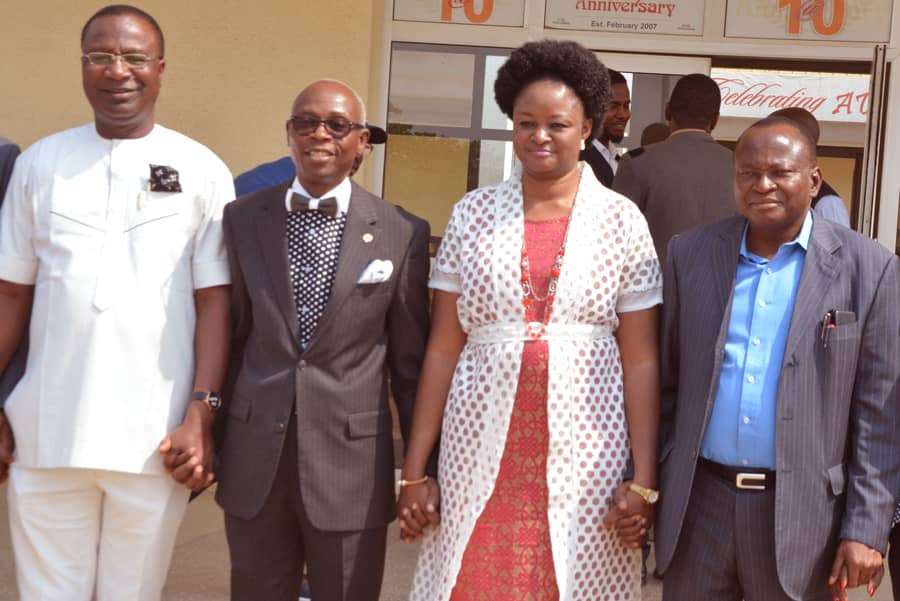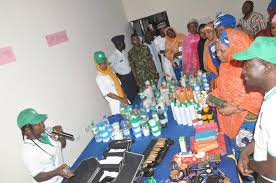News
Nat’l Development: Centre Moves To Enhance Mentorship Among Youths

By Lukman Amusa
Thinkers Theatre and Empowerment Centre, a Non-Governmental Organisation (NGO), has initiated a programme tagged, ‘Mentor Nigeria’ aimed at enhancing mentorship for young Nigerians to help them make good decisions and support national development.
The founder of Thinkers Theatre and Managing Director of the project, Mrs Asher Achile made this known at the inauguration of the programme tagged: “Mentor Nigeria’’, a youth-aimed mentoring project on Tuesday in Abuja.
Achile said the centre had observed institutional and societal knowledge gap among the younger and older generation, hence the need to rejuvenate mentoring in the country.
She explained that the increasing rate of divorce, juvenal and other youth related cases in the society were as a result of lack of mentorship on young men and women.
According to her, Mentor Nigeria project is a platform for young people (mentees) to connect with the older and more experienced people called the mentors.
She said that the duty of the mentor would be to guide, counsel, and tutor the mentees attached to them.
Achile said that the goals of the programme included carrier development, skills acquisition, and rehabilitation for high risk youths, Juvenal cases, and pregnancy before marriage and drug issues.
She said that the centre was determined to achieve the goals through involvement of communities, state governments and volunteers such as teachers, coaches, families and friends of those to be mentored.
According to her, the organisation is also soliciting for partnership with corporate organisations, private businesses, professional bodies and government agencies.
“Because everyone who succeed in life had a mentor.
“To this end, we don’t want to live our youths to chance any more, we do not want to live them to find out by themselves about life, hence we have come up with this platform to assist the transfer of knowledge, skills and the enhancement of character.
“It aimed to invest also in bridging the knowledge gap in Nigeria because we have knowledge of the people who were privileged to travel to countries to gain first-hand knowledge.
“We will also be requesting for resource persons from professional bodies like the Nigerian Society of Engineers (NSE), Nigeria Bar Association (NBA) and Nigeria Medical Association (NMA) as partners,’’ Achile added.
Prof. Joseph Ajienka, the chairman, Board of Advisory of Thinkers Theatre, said that mentorship was necessary, adding that the knowledge acquired from academic training were theoretical in most cases.
Ajienka, who was represented by Prof. Stephen Okodudu, Professor of Sociology, University of Port Harcourt, said that the idea of having knowledge beyond academic learning was noble.
He said that every profession or trade had rite of passage like apprenticeship and mentorship, adding that there was the need to leverage on the knowledge of those who have had the experience over the years.
According to him, that is part of the problem we have with the youth of today, because some people just come out of the university and they want to become Dangote overnight.
“But they don’t want to go through the means through which the likes of Dangote became what they are today.
“In Igbo area, you go through the process of apprenticeship which is also part and parcel of mentorship.
“A lawyer for instance, does not just jump out of law school and want to become successful immediately, same I believe goes for a medical doctor, they have to go through a whole lot of mentorship,’’ he said.
Ajienka called on professionals to assist the group in achieving the objective of the mentorship programme to help reshape the thinking of youths.
Okodudu, also speaking on his capacity as an expert, said that the challenge in Nigeria was that people often failed to learn any job properly and that was why some of them could not grow their businesses.
He said that the mentorship programme should be replicated in every part of the Nigerian society irrespective of profession to ensure proper upbringing.
“In academic for instance, we are beginning to see a situation whereby somebody is appointed today as a graduate assistant and he is not ready to understudy anybody.
“That is what this kind of programme should do for people because regardless of what you know, there is one more thing you can still learn from people who have always been there working.
“That is why various professions like legal, medica, and architecture among others require that those who are fresh graduates should undergo a rite of passage and this is traditional to us in all of our cultures,’’ he said.




















